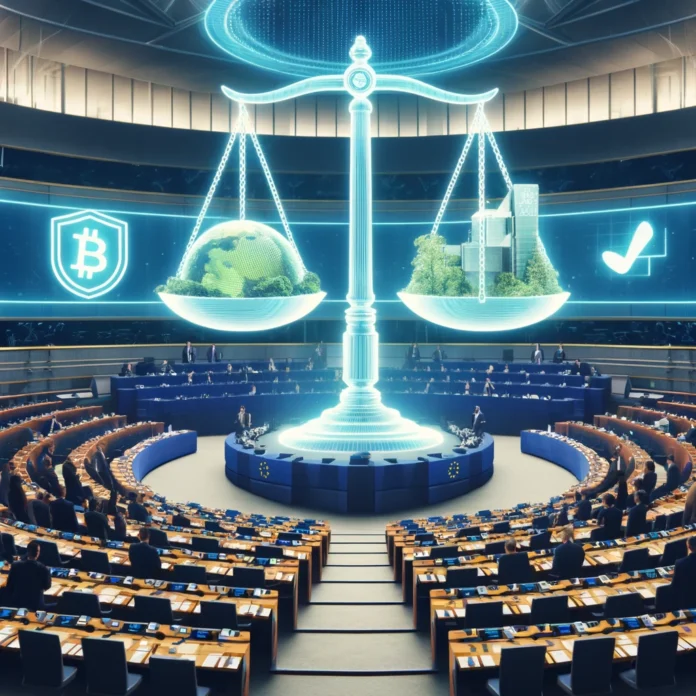In a monumental move that is set to reshape the landscape of the cryptocurrency market within the European Union (EU), the European Parliament has passed significant regulations aimed at establishing comprehensive oversight and protection measures for crypto assets. The new rules cover the tracking of cryptocurrency transfers, prevention of money laundering, and the introduction of common regulations for supervision, consumer protection, and environmental preservation.
The legislation marks a crucial step towards bringing order to the rapidly expanding world of blockchain technology and digital currencies. Here’s a breakdown of the key provisions and their implications:
Tracking Cryptocurrency Transfers:
One of the most pivotal aspects of the regulations is the establishment of measures for tracking cryptocurrency transfers akin to traditional money transfers. Known as the “Travel Rule,” this regulation mandates that payment service providers ensure the transmission of information about the sender and recipient throughout the payment chain. This means that transactions involving cryptocurrencies such as Bitcoin and E-money tokens will be subject to the same level of scrutiny as conventional financial transactions.
Moreover, transactions exceeding 1000 Euros from unhosted wallets, which are not managed by third parties like financial institutions or credit service providers, will also be covered under the regulations when interacting with hosted wallets managed by crypto service providers.
Establishment of a Unified Legal Framework:
The European Parliament has also greenlit the Regulation on Markets in Crypto Assets (MiCA), which introduces common rules for supervision, consumer protection, and environmental sustainability in the realm of cryptocurrencies. MiCA will encompass cryptocurrencies and crypto assets that do not fall under existing financial services regulations.
Under MiCA, issuers and traders of crypto assets, including value-referenced tokens and E-money tokens, will be subject to transparency, disclosure, authorization, and transaction monitoring requirements. Consumers will receive better information regarding the risks, costs, and fees associated with their transactions. Additionally, the new framework will support market integrity and financial stability through the regulation of public offerings of crypto assets.
To address the significant carbon footprint associated with cryptocurrencies, key service providers will be required to disclose their energy consumption.
Quotes from Key Figures:
Stefan Berger, Rapporteur for the Regulation on Markets in Crypto Assets: “With the MiCA regulation, we are bringing order to the wild west of the blockchain world. Europe will be the first continent with comprehensive regulation for crypto assets. For new approvals in the EU, it must be ensured that their business model does not endanger our currency stability.”
Ernest Urtasun, Co-Rapporteur of the Committee on Economic and Monetary Affairs on Transfers of Cryptocurrency: “The revision of the Anti-Money Laundering Directive will require cryptocurrency providers to detect and stop criminal crypto flows, and it will also ensure that all categories of crypto companies are subject to full anti-money laundering obligations.”
Assita Kanko, Co-Rapporteur of the Committee on Civil Liberties, Justice, and Home Affairs: “The Parliament and the Council have found a fair compromise that will make it safer for well-intentioned people to hold and trade cryptocurrencies. However, it will be more difficult for criminals, terrorists, and sanctions violators to abuse cryptocurrencies.”
Next Steps:
The texts must now be formally approved by the Council before they can be published in the Official Journal of the EU. They will come into effect 20 days after publication.
The adoption of these regulations reflects the EU Parliament’s responsiveness to the expectations of citizens for guarantees and standards regarding the use of blockchain technology, as expressed in Proposal 35(8) of the Conference on the Future of Europe.





